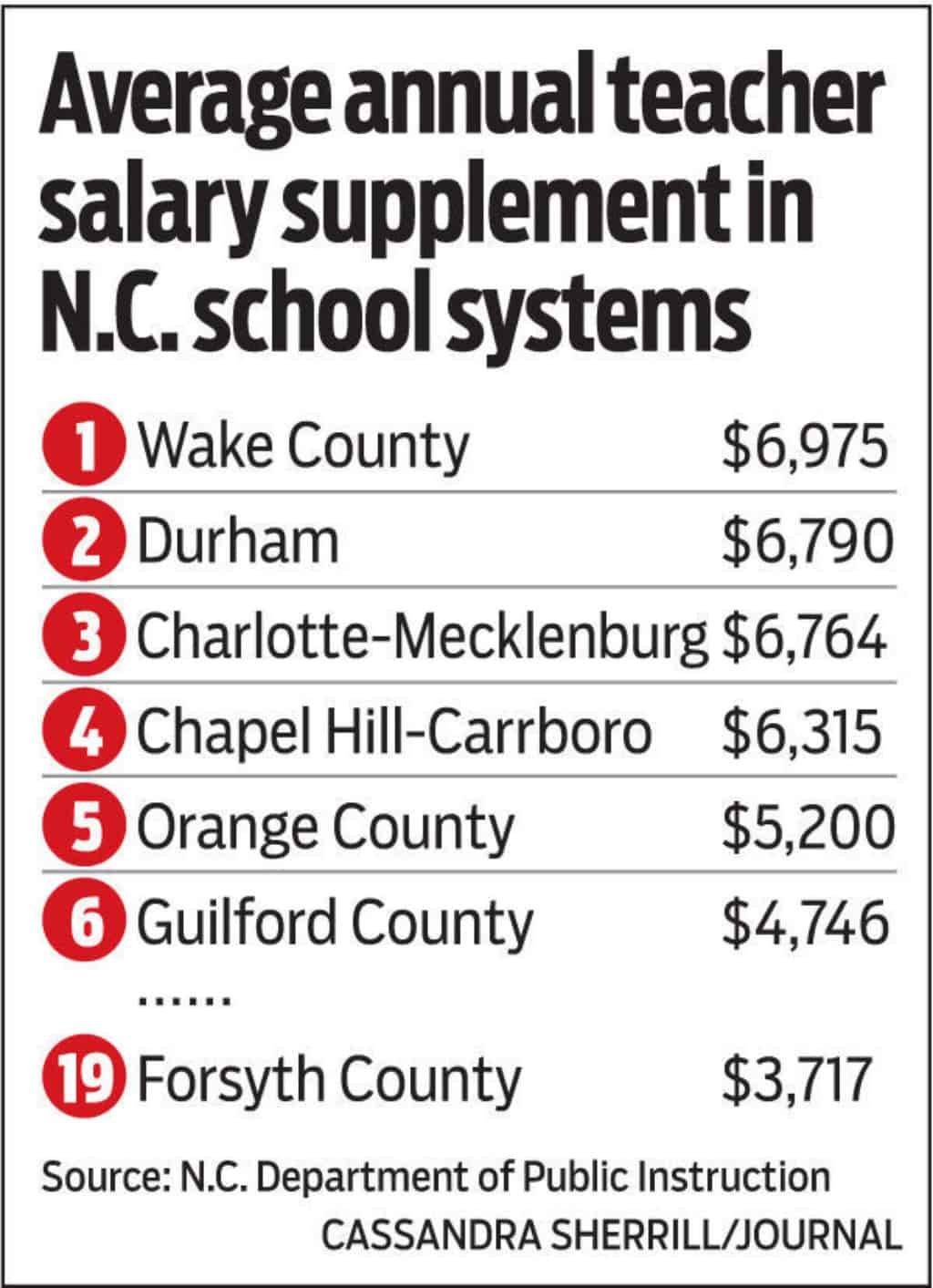

When Gov. McCrory signed the latest budget into effect this past July he made sure to mention the election year raises given to teachers first.
According to an article on July 14 by reporter Katherine Peralta in The Charlotte Observer:
The Republican governor says the $22.34 billion budget includes an average 4.7 percent pay increase for teachers across the state, meaning that for the first time in state history, average pay will be more than $50,000 a year, including local supplements by counties.
You may be wondering, “What the hell is a local supplement?” Well, a local supplement is an additional amount of money that a local district may apply on top the state’s salary to help attract teachers to come and stay in a particular district. While people may be fixated on actual state salary schedule, a local supplement has more of a direct effect on the way a district can attract and retain teachers.
My own district, the Winston-Salem/Forsyth County Schools, currently ranks 19th in the state with local supplements. Our neighbor, Guilford County, ranks much higher.
Reporter Arika Herron’s article on August 7 in The Winston-Salem Journal does an exceptional job of highlighting the effect of local supplements. The article “Schools looking for ways to cut spending, boost salaries” defines teacher supplements as a way “to improve teacher recruitment and retention.” It also talks about how it is viewed in the eyes of teachers and elected officials. Take a look at some of the quotes from the article:
Trey Ferguson is a younger teacher from Wake County.
Trey Ferguson said salary supplements were a huge factor when he and his wife were looking for their first teaching jobs three years ago.
An N.C. State graduate, Ferguson said they looked in the areas where both he and his wife grew up, but local salary supplements didn’t compare to what Wake County Public Schools were offering.
Jim Brooks is a veteran teacher in Wilkes County.
For veteran teachers, the supplements can be viewed differently. Because the supplements have to come from local funds — those provided by local governments through taxes — supplements can also be seen as a measure of community support, said Jim Brooks, 31-year teaching veteran with Wilkes County Schools.
Brooks said that while salary supplements weren’t something he considered when looking for his first job and are not enough to draw him away from the home he’s made in Wilkes County, they can be a way that teachers get a sense of their value in a community.”
“It’s kind of saying, ‘We value the work you do; We want to go beyond how the state compensates you,’” he said.
One board member here in WSFCS, Lori Goins Clark, says,
“We need to do better for our teachers. They don’t get paid enough to do one of the hardest jobs there is in the world.”
Another board member, Elisabeth Motsinger, expressed a different angle.
Board member Elisabeth Motsinger questioned whether the district’s other efforts to recruit and retain teachers, like more professional development opportunities and new teacher-leader initiatives, might be more meaningful than a modest supplement increase that equates to less than $10 each month.
But it is the next quote from Motsinger that really helps to shed light on the discussion concerning local supplements.
“The reason Wake has such huge supplements is they ask taxpayers to pay higher taxes,” she said. “That money has to come from somewhere and somewhere means taxes.”
She said the dreaded word – “taxes.” Wake has such huge supplements because they are willing to invest in their teachers.
Look at the stats concerning local supplements that Herron includes in her report. Wake ranks the highest, Guilford County is sixth, and WSFCS is 19th.
This is telling.
These differences can add up. For a younger teacher, this can swing a decision. And we in WSFCS get a lot of teacher candidates. Look at the teacher preparation programs that surround us – Wake Forest, Winston-Salem State, Salem College, App State, and UNCG just to name a few that actually place student teachers in my school, West Forsyth.
For a veteran teacher like myself, a competitive local supplement could mean that I feel valued by the very system that still lacks enough teachers to start the school year fully staffed.
So, what can a district’s community do to help teachers come and stay in a particular district?
• They can look at local supplements as a way of investing rather than being taxed.
• They can go and vote for candidates on the state level who support public education.
• They can go and vote for county commissioners who are committed to helping fully fund public schools.
• And they can go and investigate how all of the financing of schools works. It is not as black and white as some may believe it is. Rather it is very much interconnected.
The current culture in our state has not been very kind to public school teachers. Competitive local supplements could go a long way in showing value in public schools.
A longer version of this article is available on the author’s blog.



